20 Best Self-Awareness Books

How often do you look inward and reflect on your actions? This is my list of the best self-awareness books which provided me good questions to start with. I have read each book and recommend only the best.
"We go beyond not being important, but not by becoming important, but by realizing that no one is really important." - Alain de Botton
Simon Sinek: Start with why
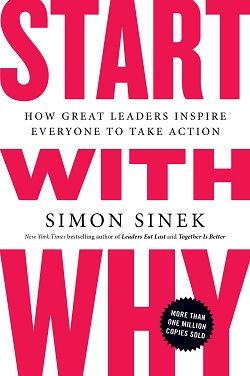
The author invites you on a tough tour of self-awareness in the book Start with Why. Everyone has at least one thought in their minds that goes beyond our basic needs in the Maslow Pyramid.
The author systematically destroys our mission-driven thinking and urges us to seek a real goal.
Daniel H. Pink: When
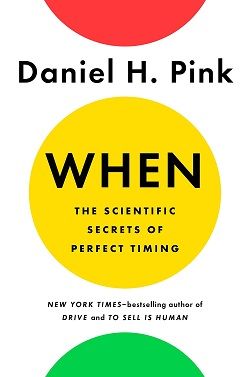
We can find research-supported productivity tips in the book of Daniel H. Pink.
- When are we most effective?
- When should we have breakfast?
- When should we take a break?
- Why should we pay attention to half times?
The author answers these and many other questions. The tips that can be put into practice are always supported by evidence, so we never feel like scrolling through the recipe book of a multitude of productivity gurus.
An easy, yet attitude-forming read.
Cal Newport: Deep Work
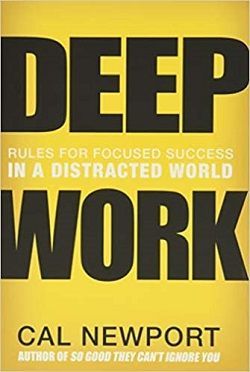
I came across one of the most useful books I’ve ever read when, after Deep Work spent a long time on my reading list, I finally got my hands on Cal Newport’s book. I consider habit-forming applications as one of the most disturbing phenomena on our efficiency.
Deep Work answered my unanswered questions about the problem I was also experiencing. Cal Newport proved with facts that it is indeed worthwhile to work in a focused way and offered methods to eliminate distractions.
Of course, reading a book only makes sense if we also apply what we hear. With that, I’m in conflict too, but at least when I follow a bad pattern, a line I read earlier flashes in and that’s sometimes enough to break a bad habit.
Timothy Ferriss: Tools of Titans
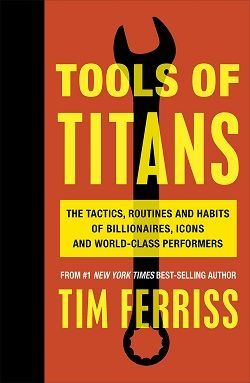
Tim Ferriss managed to condense as many tips, tools, methods, and book recommendations as possible into his book. Transcripts of podcasts recorded in recent years have often had the same effect on me as the episodes themselves.
For me, the most useful part of the book was the part summarizing the book recommendations, which is a real gold mine.
Alain de Botton: Status Anxiety
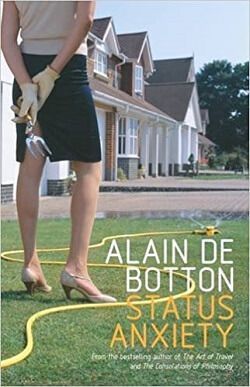
Excessive attention to the opinions of others has become a peculiar by-product of capitalism and democracy, affecting almost all of our actions. Many consider the perception of the outside world about them to be more important than their true qualities.
This approach has led to a particular fear, a constant concern that accompanies our struggle for status.
The Swiss philosopher presents the ideas of status available in various social media with various historical examples and then destroys them.
Ryan Holiday: Ego Is the Enemy
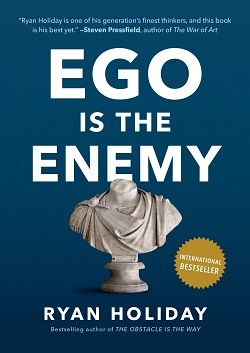
Controlling our ambitions and our egos are not topics that self-improvement books would cover too often. Through the stories of his own and historical figures, as well as the celebrities of our time, Ryan Holiday demonstrates that true greatness can only be achieved beyond ego.
The transformation of Stoic ideas into the 21st century calls for self-reflection.
We can read about talent, failures, the trap of passion, helping others, and continuous learning.
Marcus Aurelius: Meditations
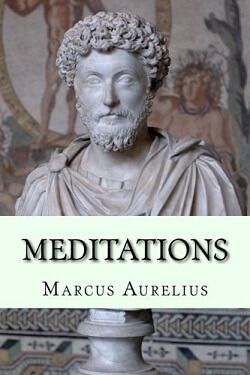
The meditations of the former Roman emperor touches most areas of Stoic teachings, and in his reflections, he also recorded his unique practices.
Marcus Aurelius suggests restraining our reactions to external events, reminding us of the shortness of life, and the value of practicing humble behavior.
The book is an internal monologue that the author did not intend to publish, which is why it is so honest and authentic.
Lucius Annaeus Seneca: On the Shortness of Life
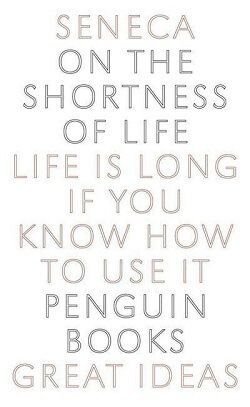
What would you do if today were your last day? The Stoic philosopher regularly asked himself this to question his priorities. In the pursuit of our own goals, the expectations of others, and status in the pursuit of goods, when we get to the end of our journey, ask the question:
Was it worth the time?
Seneca writes in his letters about continuous learning, happiness, and our relationship to material goods. Reading the book stops time and encourages you to think about the future.
Andy Hunt: Pragmatic Thinking and Learning
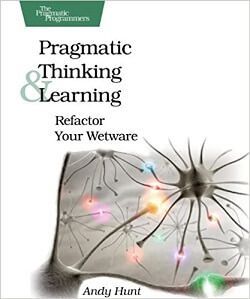
The author of the book Pragmatic Programmer, known among developers, considers effective learning to be particularly important as a programmer and writer, which is why he has dedicated an entire book to the topic.
According to the author, given the current state of technology and culture, our ability to learn is perhaps the most important element of success. Learning ability is what distinguishes those who stumble in one place from those who are constantly evolving.
- Be the weakest link in your team, so make yourself learn continuously!
- Use a mind maps to summarize your thoughts.
- Write a diary by hand every morning to help bring unique thoughts to the surface.
Andy Hunt provides us with many similar tips, models, and tools to improve our thinking and learning processes.
It provides specific advice, learning tools, and software. Andy Hunt gives us an almost complete system to learn and work better.
Joshua Foer: Moonwalking with Einstein
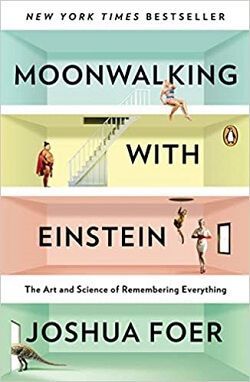
How do we remember everything in the world?
Wondering how to memorize an entire deck of cards? Can do it if you can remember the items on the shopping list? Journalist Joshua Foer interviewed memory athletes after he started to take memorization more seriously. He decided to prepare for the American Memory Championship in a year and document the process leading up to it.
In his book, he gives an insight into the world of memory athletes, while also presenting the principles of the most important books related to memory from antiquity to the present day.
1 year is a short time for such an ambitious task, so in addition to memorization tips, the author has also immersed himself in the literature on peak performance.
Reflecting on public education, shattering myths, and working memorization tips are hallmarks of the book Moonwalking with Einstein.
Dale Carnegie: How to Make Friends and Influence People
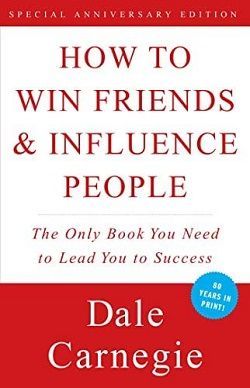
How to Make Friends and Influence People is one of the best-selling self-improvement books in the world, read and recommended by thousands today.
The title is sensationalist as for most bestselling books, which is why I was wary of Carnegie’s book for a long time. There is no chapter on manipulation in the book. While reading these simple tips, we may even be disappointed as the miracle pill is missing.
Dale Carnegie wants to shape us into practically good people:
- Be empathetic, imagine yourself in place of others, strive for solutions that benefit everyone, take the advice of others.
Slap simple advice that requires a certain degree of change of attitude to incorporate into our lives. We feel a motivating shrug on the last pages of the volume, but the reading is worth nothing if we can’t put the tips into practice.
Mark Manson: The Subtle Art of Not Giving a F*ck
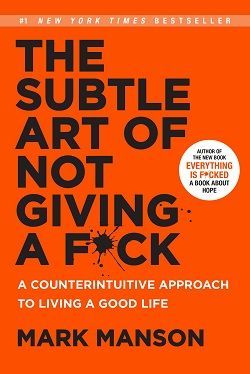
The popular blogger’s book, while misleading us with its title, doesn’t disappoint. While we’ve become accustomed to seeded thoughts from an ancient Stoic philosopher, Robert Green, who loves mythological examples, or marketing strategist Ryan Holiday, we could rightly expect something different from the seemingly loose volume of an entertaining blogger.
Mark Manson writes about shabby social trends, happiness, values and takes them by no means.
It’s not an easy reading I thought at first, but the serious topics, complemented by smooth storytelling, gave me more than I expected from the book.
Norman Doidge: The Brain that Changes Itself
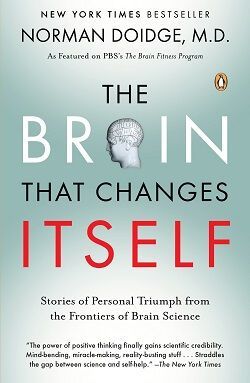
While it seems natural to put a stream of bold letters on paper with ink and the logical connection of thoughts also seems self-evident, many people have problems with both activities.
We don’t even think about how many tasks our brain performs, and meanwhile, we know so little about our complex organs.
I have blind spots for how my brain works. A year ago, I listened to a panel discussion about learning. The usual questions came up (concentration, childhood language learning…) and then the participants of the conversation got stuck in the drawing of the right hemisphere. Listening to the comments, the guest psychologist at the event naturally stated that there is no analytical left and creative right hemisphere. The brain cannot be simplified in this way.
To make up for my shortcomings, I picked up Norman Doidge’s book and recommend it to anyone who wants to learn a little more about how their brains work.
The title of the book is appropriate.
Change is the word we can best use to describe our brains. Doidge writes about the results of stroke survivors based on scientific findings, the critical role of childhood in influencing skills and sexual orientation, and difficult brain questions to list.
One of the important messages of the book for me is the principle of use or lose.
Arnold Bennett: How To Live On 24 Hours A Day
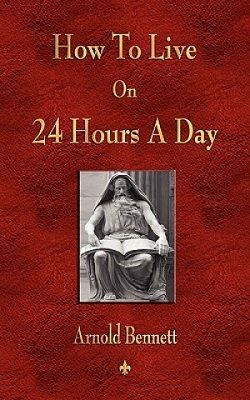
I opened 2020 with a lightweight self-improvement volume. Bennett’s book is vastly different from today’s self-awareness books, or even Dale Carnegie / Napoleon Hill era success books.
Arnold Bennett is not a guru, coach, or author of exclusively non-fiction books. Arnold Bennett was a writer. He has written short stories, novels, newspapers, and propaganda. In this case, a self-improvement book.
Anyone looking for specific tips will be disappointed in Bennett’s book. It’s a kind of paternalistic conversation with anecdotes, at the end of which we still look at our relationship to time differently.
- After grinding down for eight hours, do you feel like you can’t concentrate on anything?
- Are you always tired?
- Did you put your dreams into the depths of the “when will I have time” box?
How to live on 24 hours a day can answer your time management questions.
Carol S. Dweck: Mindset: The New Psychology of Success
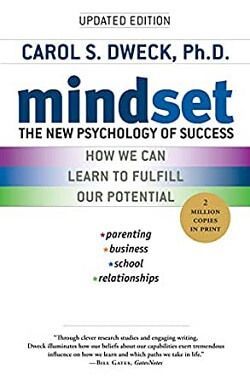
I've missed more than 9000 shots in my career. I've lost almost 300 games. 26 times, I've been trusted to take the game winning shot and missed. I've failed over and over and over again in my life. And that is why I succeed. - Michael Jordan
Carol S. Dweck, a professor of psychology at Stanford University, is researching human motivation. He realized that we can distinguish people into two groups based on their approach: people with a development-oriented and a fixed-minded approach.
Those with a growth mindset are risk-takers, love challenges, and are more likely to meet those challenges because they believe in their development.
In Mindset, Carol S. Dweck shares the results of years of research and stories from countless fields (sports, business management, parenting).
- Did you know that the inventor of IQ also thought that this IQ could be improved?
- Did you think that a fixed-minded leader was enough for a company to go bankrupt?
- Wondering how the growth and fixed mindset is manifesting in the world of sport?
Mindset: The New Psychology of Success answers every question.

Enchiridion of Epictetus
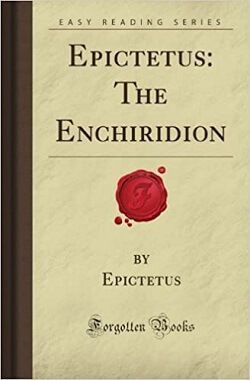
Remember, you are an actor in a drama of such sort as the Author chooses—if short, then in a short one; if long, then in a long one. If it be his pleasure that you should enact a poor man, or a cripple, or a ruler, see that you act it well.
Epictetus was born in Hierapolis nearly 2,000 years ago as a slave to a wealthy ruler. His master, Epaphroditus, allowed him to immerse himself in the humanities, so he became acquainted with stoic philosophy and the stoic Musonius Rufus, who was his mentor and teacher.
Later gaining his freedom he began to teach philosophy in Rome. After nearly 25 years of teaching, he was forced to flee when Emperor Domitian banned all philosophers from Rome. He traveled to Nicopolis, Greece, where he founded a school of philosophy and taught there until his death.
What can we learn from a frig slave that we can still use today?
Timeless values, self-awareness practices, and the discipline to focus on what matters in life.
Steven Pressfield: The War of Art
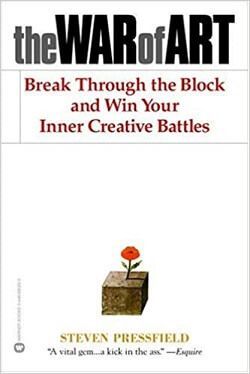
The amateur believes he must first overcome his fear; then he can do his work. The professional knows that fear can never be overcome. He knows there is no such thing as a fearless warrior or a dread-free artist.
Procrastination is present in all areas of our lives.
For example, I delayed for a long time to summarize the lessons of a book that presented me with a complex system against procrastination, but Robert McKee, who wrote the preface to the volume, did the same with writing the preface.
Our struggle with procrastination is ongoing, but this battle is more of a battle between the creative process and internal resistance.
This is why the title of the volume is good: The War of Art.
Steven Pressfield writes about creation, obstacles, and the process of becoming a professional.
Due to his occupation, the author has included several examples of writing in the volume, but this should not deceive us. The truths described are true of any creative process, not just writing.
James Clear: Atomic Habits
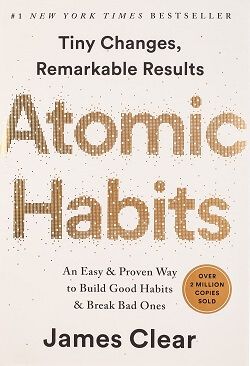
"You do not rise to the level of your goals. You fall to the level of your systems."
Do you have a New Year’s resolution that you don’t seem to be able to keep?
You’re not to blame for unnecessarily bought gym passes or ideas that are described but not started. You probably just couldn’t incorporate the new goal into your everyday life. The goal did not become an activity and then a habit.
After a month, in January 2020, I was already at war with several goals. That’s why I picked up the book Atomic Habits. It helped.
The author does not try to tailor the routines of elite commandos to ordinary people but helps simple people to develop new habits. The habits of the habit guru are supported by research, and the illustrative stories are honest and real.
Many books start from the habits of successful people and from there try to give a tip that can be applied to the little man as well. Atomic Habits reverses the equation. It helps ordinary people develop better habits on their terms.
Atomic Habits is full of everyday tips that work. I gathered the most useful ideas and tips in my summary of the book.
You can read here:
Dr. Edith Eger: The Choice: Embrace the Possible
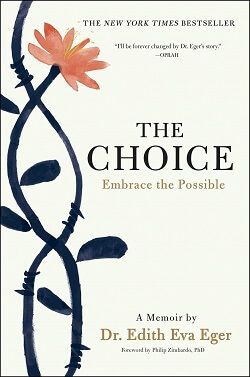
"The opposite of depression is expression. What comes out of our body doesn't make us ill. What stays in there does."
The story of Edith Eva Eger will probably tell everyone differently. Some read human cruelty, death camps, and theabout their problems from the book, others see hope, the beauty of life, and overcoming difficulties.
For me, at least, my thoughts zigzagged between the two extremes while reading the book.
Edith Eva Eger was sixteen when the Nazis transported her to Auschwitz with her family. Yet the book is not just a Holocaust memoir. The author helps others free themselves from the prison of their minds through the stories of herself and her patients.
It’s hard to write anything about the book. Maybe I don't have to. If you’re only reading two books this year, I suggest that one be Edith Eva Eger’s The Choice while the other is Viktor E. Frankl’s Yes To Life In Spite of Everything should be.
I was most impressed by these books.
Meg Jay: The Defining Decade
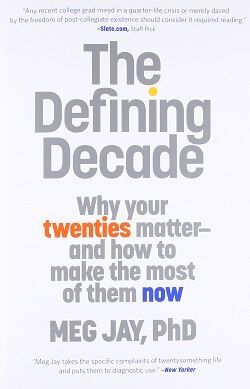
- Did you know that we experience the most defining moments of our lives before the age of 35?
- Have you ever heard that the brain undergoes more changes during our twenties than at any other stage of our adulthood?
Not to mention the change in our personality.
Meg Jay, an American clinical psychologist specializing in adult development, is the author of Decisive Decade. In his book, he mixes the frustration he felt for the missed opportunities of his thirty, forty-year-old patients with the experience of his younger clients finding their way.
This self-awareness book is about recognizing moments experienced in your twenties.
Meg Jay said 30 is not the new 20, and in addition to her book, she proved this claim in her viral TED speech.
Many management books simply take the life path/routine of successful people and deduce the recipe for success from it. Meg Jay is about to tell the stories of her seemingly unhappy patients and summarize what we should do if we want to be not successful, but at least happy along with research findings and statistics.




